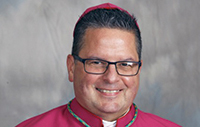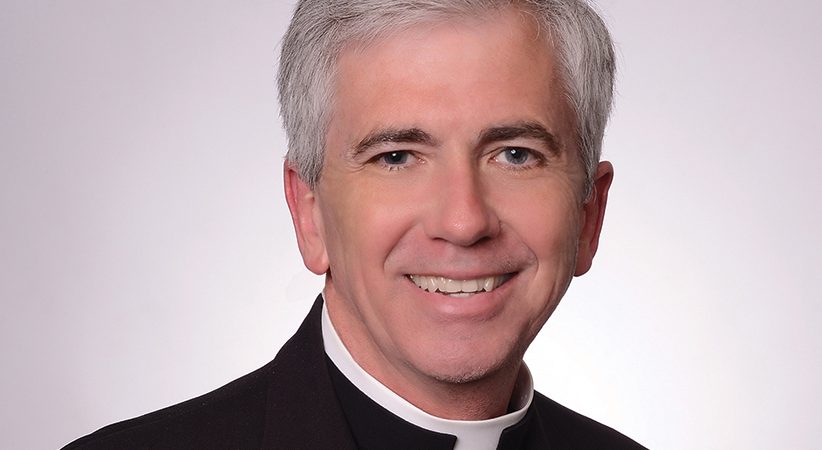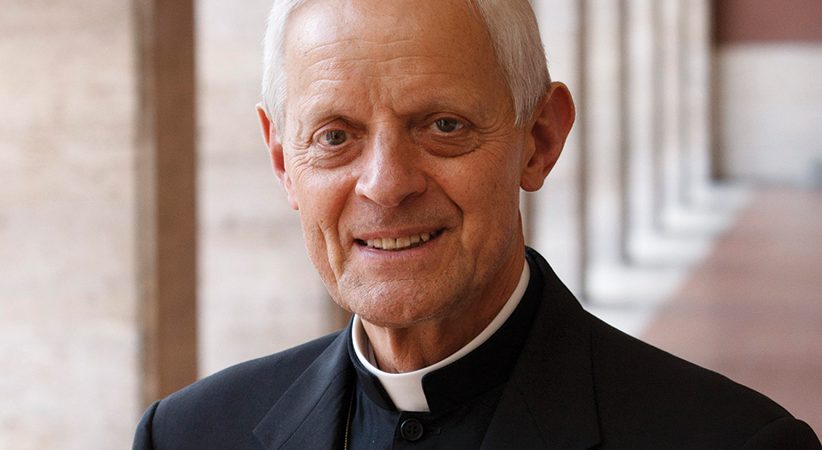When We Don’t Have the Answers
Bishop David J. Bonnar Comments Off on When We Don’t Have the Answers
 When my firstborn nephew, Sean, was just a little boy, he would incessantly ask his parents questions, especially after he discovered the word “why.” Even at a young age he articulated some rhetorical questions that had no direct answer. At one point, Sean asked his mom a God question of which my sister had no answer. She said, “Sean, you need to ask your Uncle Dave, the priest.” Does that sound familiar?
When my firstborn nephew, Sean, was just a little boy, he would incessantly ask his parents questions, especially after he discovered the word “why.” Even at a young age he articulated some rhetorical questions that had no direct answer. At one point, Sean asked his mom a God question of which my sister had no answer. She said, “Sean, you need to ask your Uncle Dave, the priest.” Does that sound familiar?
Sometimes in our ministry and in our family life, we can be perceived as the ones with all the answers. Of course, nothing could be further from the truth, for even an advanced theological degree coupled with the grace of holy orders does not bestow all the answers to life’s questions. Because we are human, questions persist, and answers become elusive. Even before I was ordained a priest, I received a hint that life would involve more questions than answers. As a graduation gift from college, a family friend prophetically gifted me with a brass paperweight shaped in the form of a question mark. Humbly, we as priests, and especially for those of us who are bishops, need to be honest and admit that we do not know it all nor do we have all the answers.
The early disciples did not know it all either, particularly when it came to prayer. They wanted to be able to pray like Jesus, prompting them to say, “Lord, teach us how to pray just as John taught his disciples” (Lk 11:1). Jesus gave them not only a formula but also a relationship with the Father. But this exchange was not the be-all and end-all of their lesson on prayer, as more answers would emerge from their time with Jesus. Jesus continued to teach them how to pray and, in that prayer, to surrender to God’s will and to forgive others. And these disciples no doubt learned from one another how to pray more frequently and reverently.
Regardless of how many years we have been ordained, or how many letters we might have after our name, we must never tire of saying what the disciples said: “Lord, teach us how to pray.” Prayer is something we must continue to work on each day.
Looking back at my priesthood and the two years that I have been a bishop, I feel blessed that God continues to place people in my life who show me how to pray and remind me of the importance as a minister of Jesus Christ to pray for others. As part of the Annual Diocesan Appeal for Catholic Charities and Diocesan Ministries in my diocese, the donors are encouraged to pass along prayer requests that are given to the bishop, whose task is to pray for their special petitions. In sitting with these requests in prayer, I am humbled by the faith, hope and love implicit within these petitions. I am humbled in other ways: One donor’s request was, “I ask that you pray that Bishop Bonnar will make better decisions.” Obviously, I do not know it all, nor do I have all the answers. This is even more reason why I need to grow in prayer and pray more often.
This exercise has also brought home to me not just the expectation but the necessity to pray for others through the grace of intercessory prayer. Throughout the course of my day, there are many opportunities for me to pray for others. In addition to holy Mass and praying the Liturgy of the Hours, I can voice petitions for God’s people when I am driving, walking or doing other things. St. Paul reminds us to “pray without ceasing” (1 Thes 5:17).
In “The Joy of the Gospel,” Pope Francis offers yet another voice, teaching us priests how to evangelize and seek the good of others through intercessory prayer. He writes: “It is a way of penetrating the Father’s heart and discovering new dimensions which can shed light on concrete situations and change them. We can say that God’s heart is touched by our intercession, yet in reality he is always there first. What our intercession achieves is that his power, his love, and his faithfulness are shown ever more clearly in the midst of the people” (No. 283).
While we do not have all the answers, the true answer to life’s questions is found in prayer. Perhaps that is what is behind the disciples’ request of Jesus.
BISHOP DAVID J. BONNAR, editor of The Priest, is bishop of the Diocese of Youngstown.





